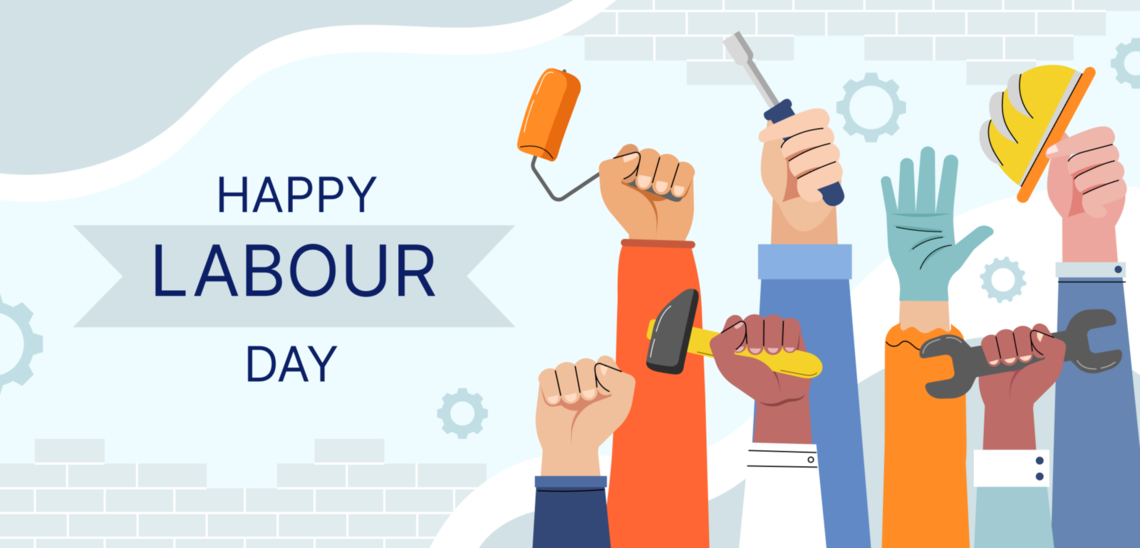Labor Day isn't just a date on the calendar, it's a story of resilience. Back in 1882, workers marched for dignity and fairness. Today, HR has evolved with empathy, data, and people-first tools at its core. As we celebrate progress, we also reflect: how does the spirit of that first march live on in modern workplaces?
From Protest to Progress
The origins of Labor Day trace back to a watershed moment in 1882, when thousands of workers marched through the streets of New York City. These individuals; carpenters, masons, tailors, and laborers from every trade, sacrificed a day's wages to advocate for what many now consider basic rights:
1)Reasonable working hours
2)Safer conditions
3)Fair compensation
This demonstration, which would later be recognized as the first Workers' Day parade, marked the beginning of a transformation in employer-employee relations. The participants could hardly have anticipated how their actions would catalyze a movement that would eventually be commemorated throughout the world.
The significance of this event extends beyond its historical context. It represents a fundamental shift in how societies value their workforce, acknowledging that organizational success and human dignity are inextricably linked, not competing interests.
Labor Day in the Arab World
While Labor Day (May Day) has become universally recognized, its manifestation in the Arab world has evolved with distinct regional characteristics:
1)May 1st, International Workers' Day, is observed across the Middle East and North Africa
2)The commemoration reflects the unique economic and cultural landscape of the region
3)May Day serves as more than a ceremonial holiday
In countries throughout the Arab world, May Day represents an ongoing dialogue about worker rights and responsibilities within economies that are rapidly modernizing while maintaining cultural authenticity. The celebration acknowledges distinctive regional challenges:
•Balancing technological advancement with traditional values
•Adapting global best practices to local contexts
•Creating sustainable employment opportunities in diverse economic environments
Unlike Western observances that often emphasize leisure, Labor Day celebrations across many Arab nations focus on active engagement with labor policy development and workplace improvement. This approach reflects a pragmatic understanding that prosperity depends on thoughtfully constructed employer-employee relationships that honor both productivity and human welfare.
Regional business leaders have increasingly recognized that the Arab world's approach to labor relations must be developed indigenously rather than imported wholesale from other markets, a perspective that acknowledges both universal principles and local realities.
What Labor Day Means at KayanHR?
At KayanHR, the principles underlying this day inform our operational philosophy throughout the year. Our name itself, "Kayan" (كيان) meaning "entity" or "being" in Arabic, reflects our foundational belief that organizations and their workforce constitute an integrated whole rather than separate, occasionally opposing forces.
Our Three Essential Principles
1.Human Dignity First
•Workforce management is fundamentally about human dignity
•Systems designed to enhance the experience of each individual
•Every feature begins with: "How will this honor the contributions and potential of the people it serves?"
2.Sustainable Productivity
•Sustainable productivity emerges from environments where employees can excel
•Solutions focus on creating workplaces with meaningful recognition, clear communication, and genuine opportunity
•Research consistently links these factors to both individual fulfillment and organizational performance
3.Technology as Enhancement
•Technology should augment human capabilities rather than diminish human involvement
•Digital HR solutions streamline administrative processes specifically to create space for interpersonal connections
•Strategic thinking that technology cannot replicate is prioritized
Conclusion
At KayanHR, we view ourselves as stewards of this evolving tradition, translating timeless principles of human dignity and fair exchange into contemporary systems that serve the complex needs of modern organizations. We recognize that the most successful businesses are those that honor both their commercial objectives and their human obligations.
As we observe another Labor Day, we invite organizations throughout the region to consider how their workforce management practices might better reflect the spirit of this commemoration; not as an annual observance but as a daily commitment to building workplaces where both businesses and the people who power them can thrive together.

